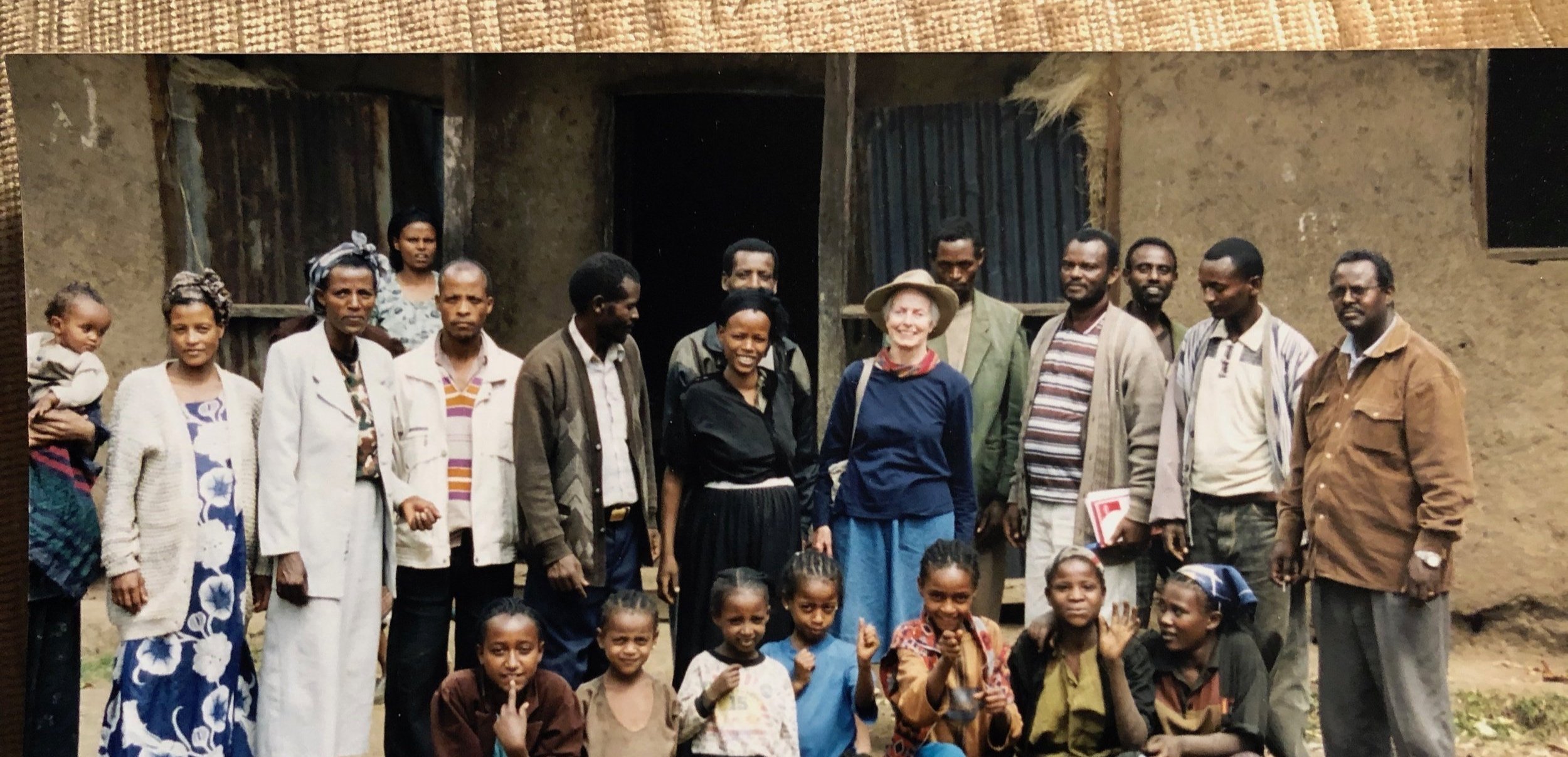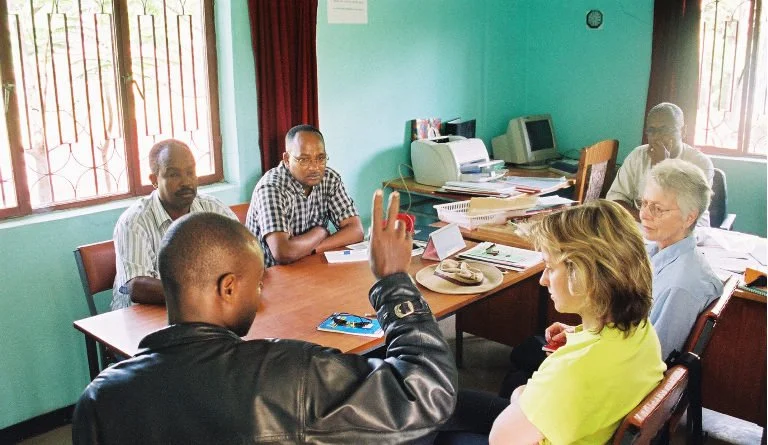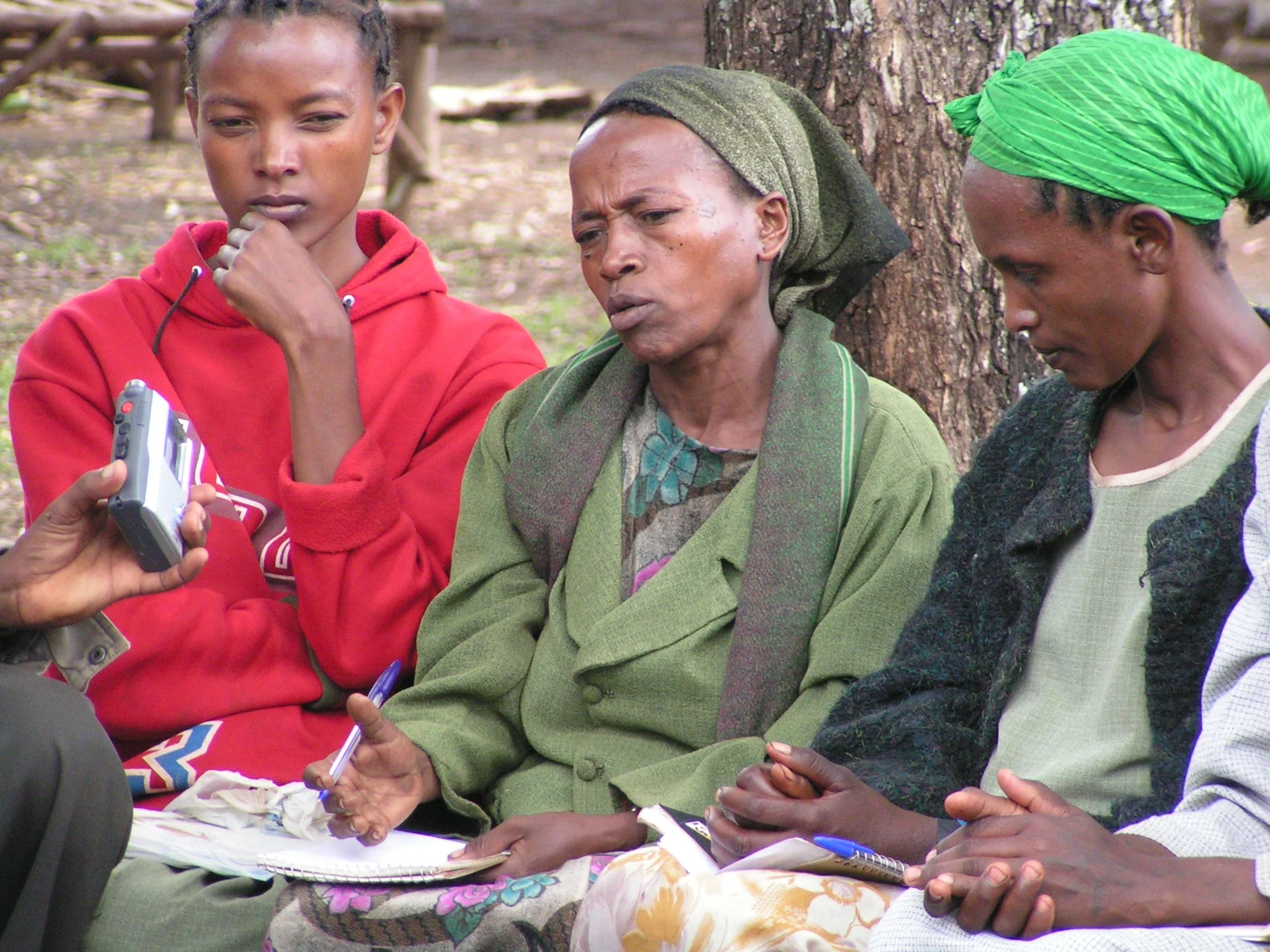
Our History

In the 1970s, our founder Jane Boorstein became interested in the topic of global population. Since then, she has helped local communities resolve challenges in their lives while preserving the environment and reducing poverty, and ensure community wellbeing.
During the 1980s and 1990s, Boorstein traveled to East Africa and South Asia to speak with women and men and gain a better understanding of the challenges faced locally. As she listened to stories about peoples’ lives, Boorstein began to realize that local people were mostly concerned with basic needs such as food and housing. She also noticed that men and women had different perspectives on their families and communities.
Boorstein respected the cultural traditions that formed people’s visions for their lives and the number of children they expected to have. She knew that people needed to make decisions about their families without being told what to do by outsiders. Simultaneously, she saw basic needs were stressed by having large families.
In order to address complex challenges, Boorstein realized that local knowledge and decision-making were crucial and that communities needed to determine the pace and direction of change they wanted to see.
Later, Boorstein established the Partnership for Sustainable Families at Columbia University to provide an institutional home for her new idea, which she named Learning Our Way Out or LOWO.
Emphasizing the power of dialogue over teaching, LOWO was based on the premise that women and men, guided by trained peer facilitators, could talk together to identify their own challenges, and discover practical solutions on their own.
To test her idea, Boorstein piloted a program in southern Ethiopia. Here she trained local people as facilitators to guide community conversations. She wanted facilitators to ask open-ended questions to get people thinking about the potential sources of their problems.
For example, if someone mentioned they now walk farther to gather firewood, a facilitator might ask, “why is that?” and then continue to ask questions to discover the root causes. If the firewood was farther away because more trees had been harvested, the facilitator might ask why or how that occurred.
Boorstein hoped that community conversations would allow people to connect the dots for themselves to uncover the root causes of their challenges.
Through these conversations, community members considered the impact on their land, access to resources, and economic challenges. Insights gleaned from these conversations could lead to an interest in family planning and even generate a demand for contraceptive services.
In 2000 Boorstein won a significant grant by the Bill & Melinda Gates Foundation, and the LOWO program was launched in 15 communities in southeastern Ethiopia. To implement LOWO locally, Boorstein partnered with the International Institute of Rural Reconstruction (IIRR) and several local Ethiopian nonprofit organizations. Within five years, LOWO reached an estimated 90,000 people.
In qualitative evaluations of LOWO, participants mentioned that LOWO’s facilitated community conversations motivated them to further their educations, fostered better communication and decision making within families, and helped improve economic wellbeing. Further, they noted that these conversations had increased female leadership in their families and many pointed to LOWO as a key turning point for their lives.
LOWO inspired The International Institute of Rural Reconstruction (IIRR) to use its community conversation approach in their work relating to sexual and reproductive health and gender-based violence. These examples are inspiring, as LOWO’s format offers a useful tool to many existing organizations working in international development.
LOWO serves as a model for profound restructuring of the standard way that international development organizations operate, by truly keeping local people’s voices at the forefront.
In 2021, Boorstein renewed a partnership with IIRR to re-implement LOWO in several new communities in rural Ethiopia.
LOWO is now seeking to establish new connections with additional organizations to expand the use of LOWO’s conversational model and expand its geographic reach.
LOWO’s hope is that its community dialogues can help address the multifaceted challenges humanity continues to face, and the overlapping issues of environmental degradation and poverty.
Jane Boorstein’s vision and LOWO’s philosophy remain inherently intersectional in nature, integrating voices of people who are traditionally marginalized and allowing community needs to remain at the forefront.







